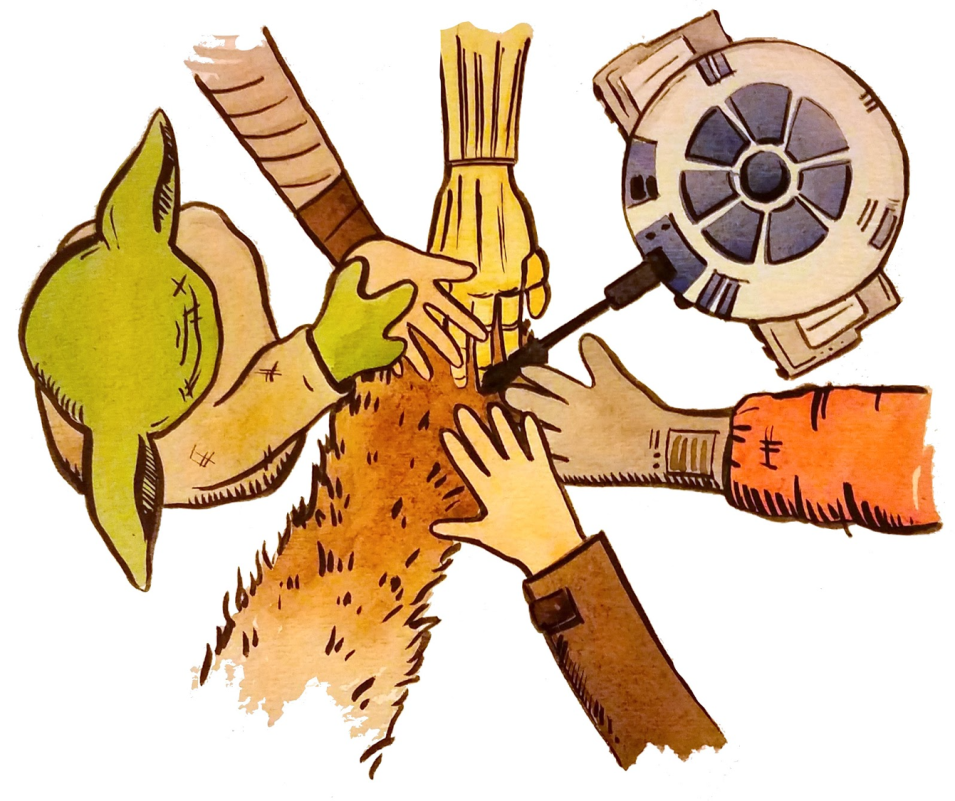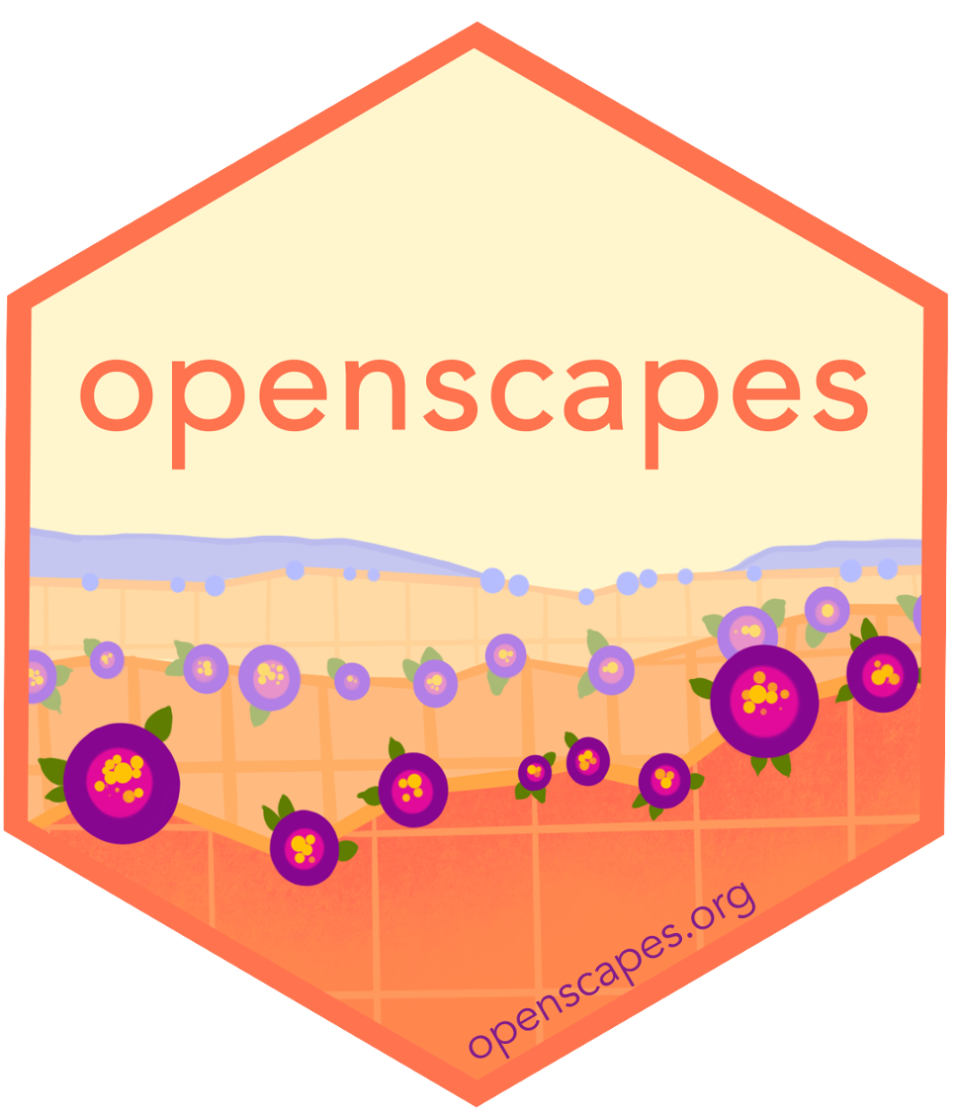In The Empire Strikes Back, when Luke Skywalker crashed his X-wing fighter in a swamp on the distant planet Dagobah, he felt lonely and confused. His ship was stuck, and he wasn’t sure how to get it out. But then Skywalker met Jedi Master Yoda. Yoda showed his apprentice Skywalker how to harness The Force to lift his ship out of the swamp and how to use these skills to do things Skywalker could never have imagined.
Openscapes: Using "The Force" of Open Science in the Cloud
Dr. Julia Stewart Lowndes launched Openscapes to help other environmental scientists harness “The Force” of open science. Artwork by Allison Horst.
“The Force, to me, is open data science,” said Dr. Julia Stewart Lowndes, a marine scientist at the National Center for Ecological Analysis and Synthesis (NCEAS) at the University of California at Santa Barbara. Lowndes uses Skywalker’s learning experience as an analogy for what it feels like to venture into computational data analyses alone.
Researchers are often tasked with analyzing large datasets, but they rarely have formal training in coding, data wrangling, and collaborative research practices. Compounding these challenges is the need to migrate data analyses to the cloud as remote sensing instruments provide higher resolution data. Lowndes felt this first-hand in 2013 while working on the annual Ocean Health Index assessment with a team of researchers. Wading through unruly documentation buried in forwarded emails, Lowndes knew there was a better way to analyze data collaboratively.
Enter Yoda. Or in this case, open science.
After learning the power of open software and collaborative computing, Lowndes is now an advocate for open science. She launched Openscapes at NCEAS through a Mozilla fellowship in 2018 to help other environmental science teams harness the power of collaborative coding and foster a scientific culture that is more welcoming, open, and efficient. At the end of 2020, Erin Robinson, former executive director of Earth Science Information Partners and co-founder of Metadata Game Changers, joined Openscapes as co-director, bringing over a decade of experience in strategic planning and community building in Earth science.
Openscapes recently received NASA Research Opportunities in Space and Earth Science (ROSES) funding to support researchers migrating workflows to the cloud. Collaborating with Dr. Amanda Tan, a senior data scientist and cloud evangelist at the University of Washington’s eScience Institute, the NASA ROSES award enables the Openscapes team to work with mentors from NASA's Earth Observing System Data and Information System (EOSDIS) Distributed Active Archive Centers (DAACs) in building a larger framework to support the specific needs of the NASA community.
Five EOSDIS DAACs are participating in the first cohort: Atmospheric Science Data Center (ASDC), Goddard Earth Sciences Data and Information Services Center (GES DISC), Land Processes DAAC (LP DAAC), National Snow and Ice Data Center DAAC (NSIDC DAAC), and Physical Oceanography DAAC (PO DAAC). Each DAAC selected up to three mentors, who are already helping researchers utilize the Earthdata Cloud.
Openscapes has partnered with The Carpentries, a globally-known data and software skills training network, to lead workshops for DAAC researchers and train them to become confident teachers themselves. Openscapes will provide further professional development and leadership support for DAAC mentors to lead workshops for NASA-data-specific cloud skills. These cloud workshops will use open-source infrastructure developed by 2i2c, another Openscapes partner, with origins teaching university students at UC Berkeley to provide easy “one-click-to-cloud” access using Jupyter Notebooks.
Openscapes and its partners aim to support and strengthen the community of DAAC mentors who are creating cloud learning resources. They will empower research teams that are using NASA data in the cloud with open data science practices through the Openscapes Champions program. The Champions program is a multi-month remote mentorship designed to help develop habits and mindsets to make data workflows and team culture more efficient and resilient.
By creating open resources for teaching and learning the essential components of cloud computing, Openscapes works to improve the way scientists interact with data as individuals and as a community. And by empowering researchers to teach and mentor each other, Openscapes aims to turn cloud apprentices into cloud Jedi masters.
Additional Resources
Announcing the NASA Openscapes Framework
Published March 24, 2021

